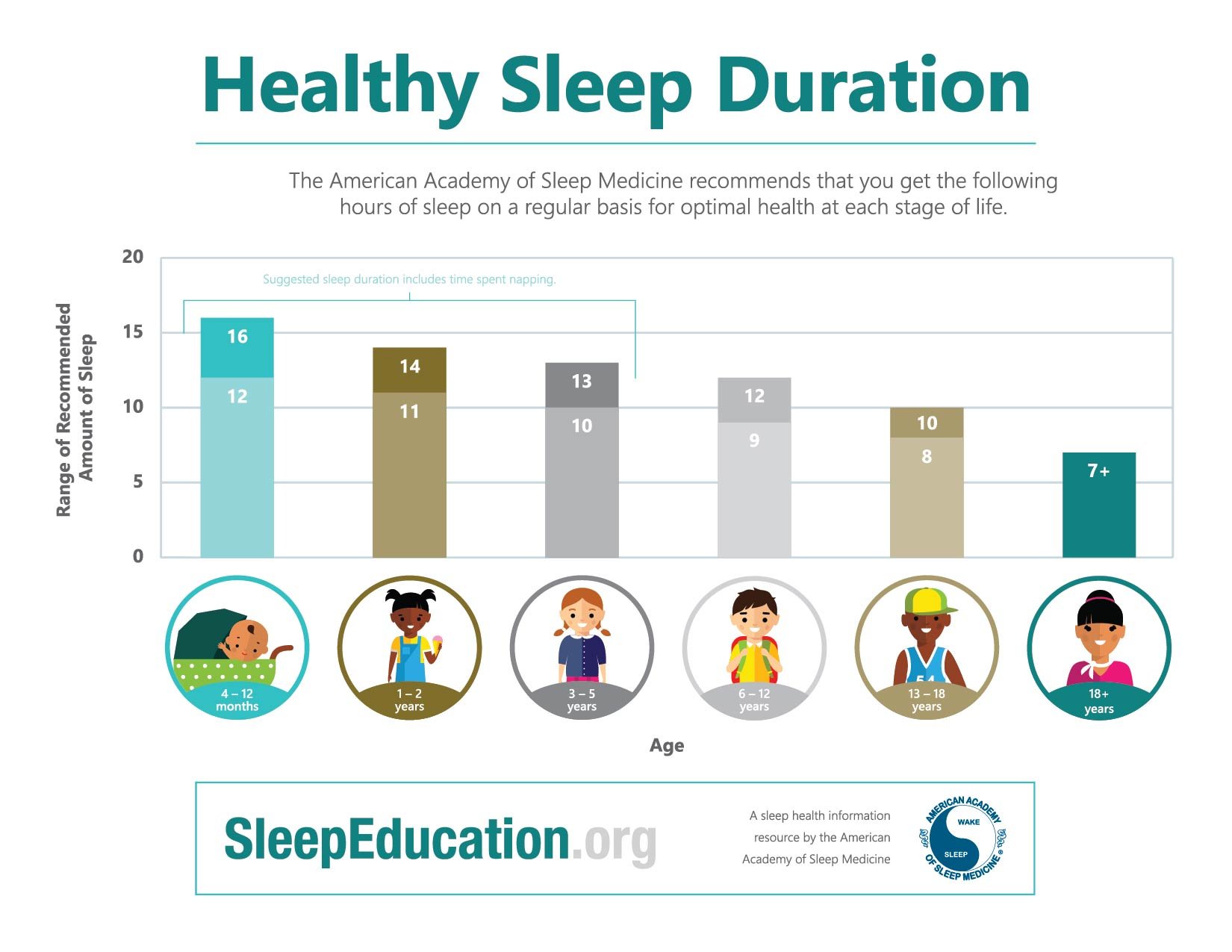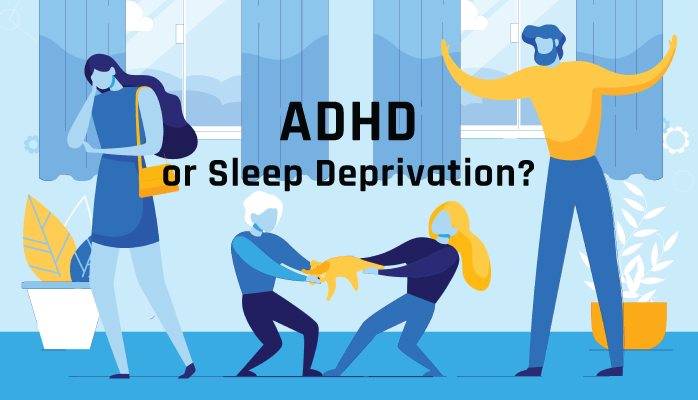How Many Hours of Sleep Do Children Need?
Children need more sleep than adults. The younger the child, the more sleep they need. Below is a guideline for the recommended minimum and maximum amount of sleep your child should be getting based on their age [Sleep Foundation]. All children are different and have unique needs, but this general guideline can provide you with a baseline on which to customize.
- Newborns 0-4 months
- Recommended 14-17 hours per day
- No less than 11 hours
- No more than 19 hours
- Infants 4-12 months
- Recommended 12-16 hours
- No less than 10 hours
- No more than 18 hours
- Toddlers 1-3 years
- Recommended 11-14 hours
- No less than 9 hours
- No more than 16 hours
- Preschoolers 3-5 years
- Recommended 10-13 hours
- No less than 8 hours
- No more than 14 hours
- Adolescents 6-13
- Recommended 9-12 hours
- No less than 7 hours
- No more than 12 hours
- Teenagers 13-18 years
- Recommended 8-10 hours
- No less than 7 hours
- No more than 11 hours
What’s important is to try and establish what amount of sleep allows your child to perform best. When children don’t get enough, they will suffer from sleep deprivation. Sometimes, sleep deprivation can mirror ADHD. Continue reading to learn more about the differences between the two, and how to tell them apart.

Signs of Sleep Deprivation and ADHD are Similar
Children will show signs of sleep deprivation when they aren’t getting enough sleep. We are all familiar with terms like the “witching hour” when our children get sleepy. The defiant, crabby, and hyperactive behaviors that are characteristic of the witching hour are also remarkably the same signs children chronically show when they are suffering from sleep deprivation.
These signs of sleep deprivation in children include:
- Behavior that is consistent with ADHD:
- Hyperactivity
- Difficulty concentrating
- Defiant behavior
- Impulsive behavior
- Excessive sleep on weekends
- Falling asleep during the day, such as at school
- Poor or erratic performance at school
- Hard time waking up in the morning
In fact, there is an increasing body of evidence from studies that children with chronic sleep problems can be misdiagnosed with ADHD (Shur-Fen Gau 2006).
Establishing a Behavioral Baseline for Children
An important part of determining whether or not your child is suffering from sleep deprivation is establishing a baseline of what behavior is normal for your child.
Choose a couple of days when you are sure your child is meeting the sleep recommendations and then observe their behavior and performance. Then, over time, look for any erratic behavior or a downturn in their performance. Chronic behavior or reductions in performance that deviate from that established baseline may be a sign of sleep deprivation.
Reasons Your Child Might be Sleep Deprived
There are several lifestyle reasons your child may be sleep deprived:
- Erratic sleep schedule
- No bedtime routine
- Too much screen time
- Not enough exercise
- Room that is too loud, bright, or full of distractions during the night
A recent study on sleep and screens conclusively showed that children who watched more TV and had TV in their bedrooms “displayed significantly shorter sleep duration and worse sleep”, and were inclined to nap longer. Importantly, the study showed that the extra napping did not offset these negative impacts.
Bedtimes and bedtime routines are also extremely important for ensuring that your child has enough time to meet their minimum sleep requirements. Also, their room should be conducive to sleep, especially if your child is a light sleeper. This means no toys or distractions, and definitely, non screens.
Other Reasons for Sleep Deprivation in Children
Besides lifestyle, children can also suffer from sleep disorders that affect sleep, such as:
- Sleep apnea
- Insomnia
- Circadian rhythm disorders
- Night terrors
If you live in Alaska and your child seems to be suffering from sleep deprivation and is not getting much screen time, please access this free online sleep test to get in touch with us.


